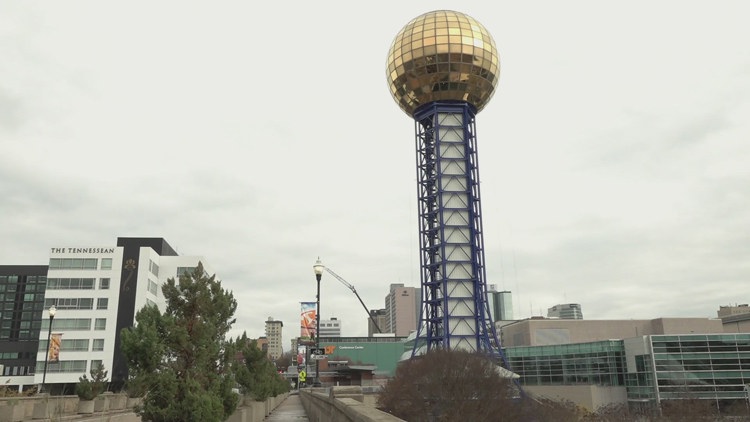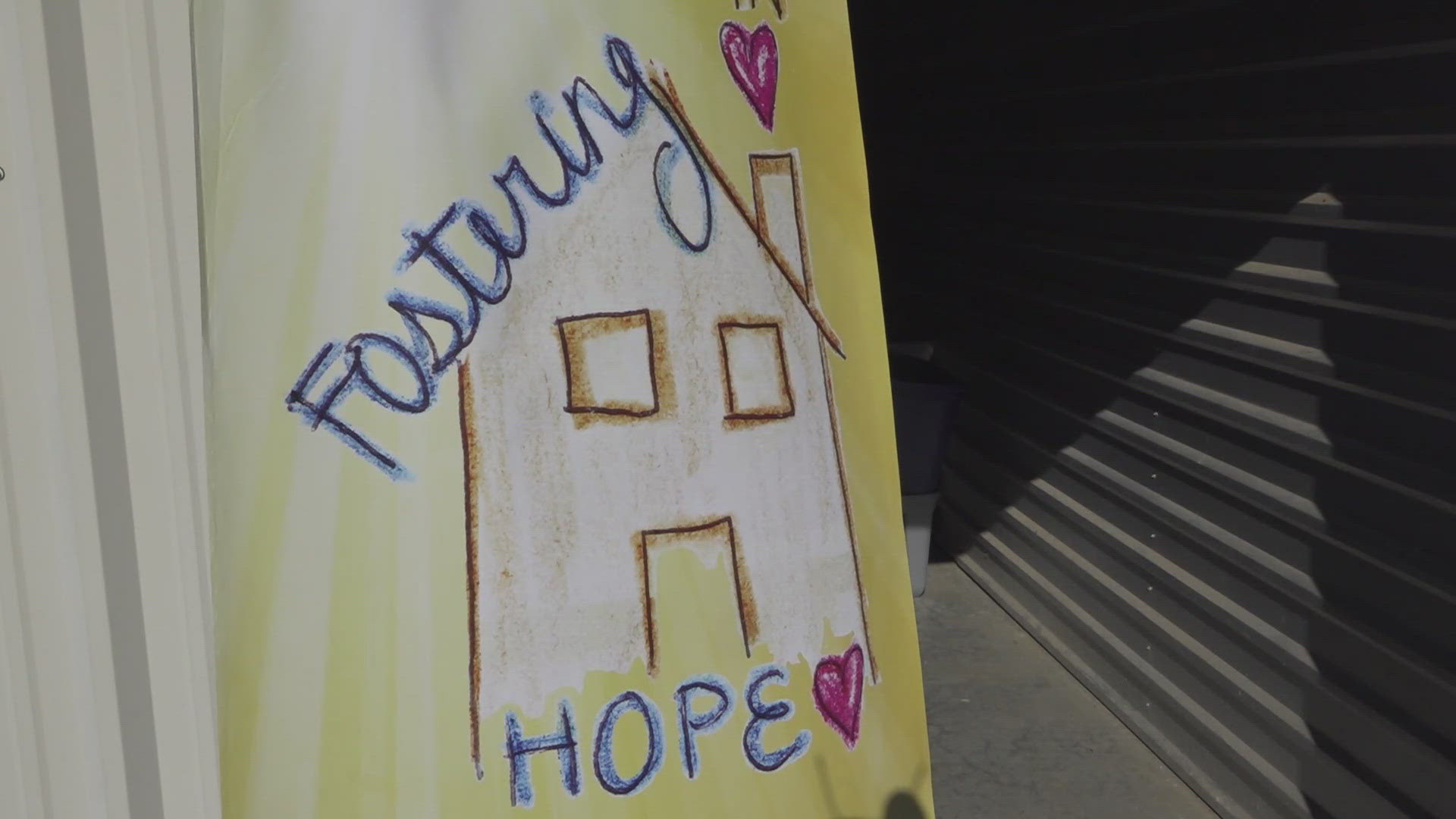KNOXVILLE, Tenn. — Knoxville City Council met on Tuesday to consider a lengthy agenda that includes formally passing the city's budget for the 2024-2025 fiscal year.
The budget proposal passed on first reading on April 30. It's a bigger budget compared to last year's $433 million proposal, and does not include property tax increases. It was unveiled by Knoxville Mayor Indya Kincannon during her annual State of the City address, where she said the budget is meant to reflect "our commitment to completion."
Knoxville City Council also discussed a resolution approving around $4.2 million for the second phase of improvements to the Western Heights community. They also discussed applying for a large federal grant meant to fund a clean energy program that reduces energy costs through community-led projects.
More information about some of the most significant items on the city council's agenda is available below.
$461.6 million net budget proposal - PASSED
Approved on the first reading on April 30, This proposal would set the city's budget for the upcoming fiscal year, preserving the city's property tax rate of $2.1556 per $100 of assessed value while still generating more money compared to the previous fiscal year.
It includes $7 million for parks and recreation improvements, including money to design a new canopy for the Tennessee Amphitheater. It also would go towards money to pay for improvements to Lakeshore Park and Williams Creek Golf Course, and work on a new Lonsdale park.
The budget includes around $3.9 million in pay increases for Knoxville Police Department officers. The money would increase the starting pay for new officers to $56,000 and boost pay for experienced officers to "keep their salaries and benefits competitive with law-enforcement agencies that currently pay better than KPD."
It also includes funds to increase stipends for advanced EMTs to $3,750 a year, and $8,000 per year for paramedics. The budget also aims to bring in new firefighter recruits and pay for a 2.5% salary raise for all general government employees. City first responders would also see step-level raises.
Around $3 million in the budget would go to a new fire station in East Knoxville's Burlington community. Another $4 million would be committed to the project in the following budget.
It also allocates $8 million in total for affordable housing in the city. The city said $4.2 million in affordable housing funding would go to the "Transforming Western" redevelopment project in the Western Heights community. Another $2.5 million would go to the affordable rental development fund and $1.1 million to permanent supportive housing.
Around $2.4 million would go to support the creation of a new rhino habitat and floating boardwalk at Zoo Knoxville, $2.7 in public safety grants, and $11.7 million for road and bridge improvements.
Around $648,500 would go to arts and culture nonprofits, and $1.5 million would go to community agency grants. Funding would increase by $860,000 to support the Student Internet Access Program through the Knoxville Utilities Board, providing free broadband to low-income student households.
The budget proposal passed on first reading by an 8-1 vote, after council member Amelia Parker said she wanted more time to review it.
2025-2030 Knoxville Capital Improvements Program - PASSED ON FIRST READING
After getting approval from the Knoxville-Knox County Planning Commission, the capital improvements plan is meant to meet capital needs and help prepare a "long-term funding strategy."
The CIP said the city would have a subtotal commitment of around $41.8 million toward capital projects, along with contributions from sources like KUB and Knox County totaling around $1.5 million.
Most of that money would go to the Capital Projects Fund, with $810,000 going to the Public Assembly Facilities Capital Fund and $800,000 to the Metro Parking Capital Fund. Around $2.2 million would go towards the Convention Center Capital Fund, according to the "Commitments to Completion Capital Improvement Program."
A project started in 2020 to redevelop and improve the Western Heights community, an area largely operated by Knoxville's Community Development Corporation that provides housing for people with low incomes. The project was named "Transforming Western," and envisions a neighborhood that provides access to transportation, arts and opportunities for entrepreneurship and recreation.
According to its Transformation Plan, the median household income in Western Heights was around $18,100 at the time the project started — less than half the median income of Knoxville.
It envisions a neighborhood that serves households with a mix of incomes, complete with new and improved homes. KCDC also said it wanted to establish responsive, on-site management with new amenities and attentive maintenance.
According to the Transformation Plan, the CAC and KCDC surveyed 76% of the target residents to learn about their specific needs. They mentioned needing transportation options, out-of-school programming and job training.
During the first phase of construction, KCDC received a $40 million federal grant to prepare and install utilities as well as build 76 units worth of new housing. The second phase of construction includes mass grading work and right-of-way improvements, the city said. The work includes improving streets, sidewalks, curbs, guttering and lighting.
Crews will also install utilities like stormwater drainage. Each phase of construction will also include building new mixed-income housing. The Transforming Western Plan said that at the end of the second phase of construction, Western Heights would have 51 units for extremely low-income households, 44 affordable housing units and 24 market-rate units.
"Each phase will serve a range of incomes, from extremely low-income units (one-for-one replacement of the existing 1953 units), affordable units, and market-rate units. The high-quality design will fit into the surrounding neighborhood, achieve the aspirations of the current residents, and attract new individuals and families to choose Western Heights as their new home," the plan said.
The Knoxville City Council will also consider applying for a federal grant that could provide up to $3.6 million to help fund clean energy programs that reduce energy costs through community-led projects. The U.S. Department of Energy, Office of State and Community Energy Programs is taking applications for the grant.
It requires a 5% local match, which would effectively cost the city up to $180,000. The city said it would use the money on energy efficiency upgrades, solar energy technology and diverse mobility options to help low-income communities access public transit.
Applications are due by May 31, and selected communities are expected to be announced in August. East TN Clean Fuels agreed to pay the cost to match the grant.



